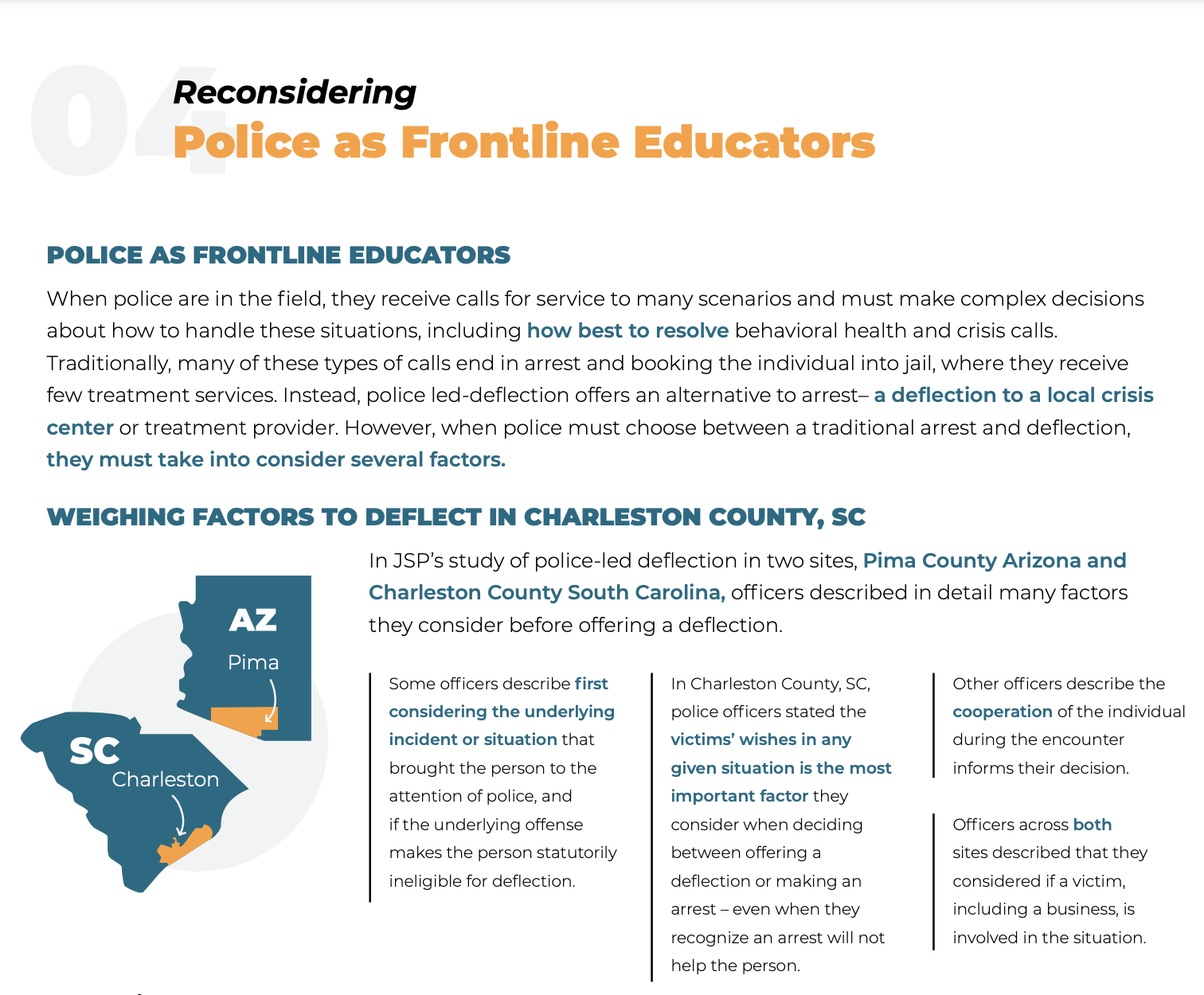All Resources

ONE PAGER
Police as Frontline Educators
JSP Staff
When police are in the field, they receive calls for service to many scenarios and must make complex decisions about how to handle these situations, including how best to resolve behavioral health and crisis calls. Traditionally, many of these types of calls end in arrest and booking the individual into jail, where they receive few treatment services. Instead, police led-deflection offers an alternative to arrest– a deflection to a local crisis center or treatment provider. However, when police must choose between a traditional arrest and deflection, they must take into consider several factors, including the victim’s wishes. This can invite potential bias and influence an officer to arrest. This is not to suggest that officers shouldn’t consider victims, but it does point out the tension police are experiencing when trying to do what is best for the individual while also honoring the victim’s wishes.
Police officers can change this dynamic by considering each behavioral health call with a victim as an opportunity to teach the victim about a behavioral health approach to policing. This resource discusses how police can become frontline educators about a behavioral health approach to policing.
